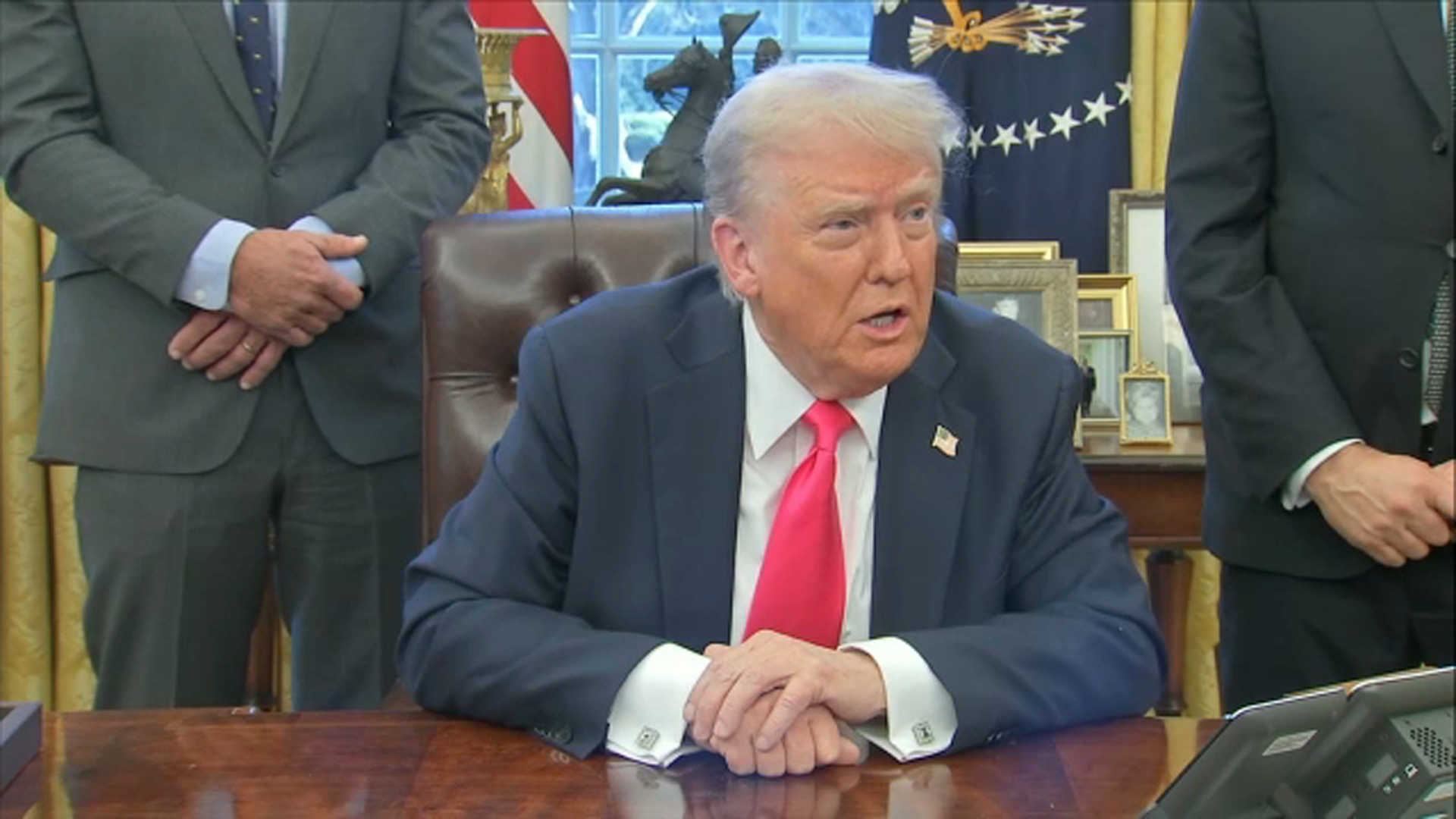
WASHINGTON – President Donald Trump has declared war.
On paper straws.
“These things don’t work,” he complained from the Oval Office on Monday while asserting that U.S. policy now aims to end use of the biodegradable sipping sticks. “I’ve had them many times, and on occasion, they break. They explode.”
The next day, Trump took on energy-efficient light bulbs and low-flow toilets, showers, washing machines and dishwashers, instructing the Environmental Protection Agency to return to “common sense” standards that will keep water flowing steadily and the lights burning brightly.
Since he returned to office nearly a month ago, the president who promised to end the war in Ukraine and bring down food prices has made several moves that appeal to his supporters but don’t appear to impact the daily lives of most Americans, from renaming the Gulf of Mexico to barring government employee pronouns on emails.
“Some of these issues are merely Trump’s pet peeves – he’s been complaining about straws and showers for years,” said Jennifer Mercieca, a historian of American political rhetoric at Texas A&M University and the author of “Demagogue For President: The Rhetorical Genius of Donald Trump.”
Others, like renaming the Gulf of Mexico, are displays of power, she said.
“The power to name mountains and bodies of water is the power to define reality, to erase maps (and perhaps redraw national boundaries) – such power exceeds the limited Constitutional powers of a president,” Mercieca said. “And, ultimately, I believe that Trump is trying to do big things, to leave his mark on the nation and the world.”
The White House defended Trump’s actions as a move away from climate and cultural policies pushed by activists and enacted by the previous administration.
“President Trump is bringing back common-sense policies and fulfilling the promises that won him the overwhelming support of 77 million Americans,” said Harrison Fields, the White House principal deputy press secretary. “In just his first three weeks, he has taken bold, decisive action to undo the damage caused by the Biden-Harris administration and to improve the lives of every American.”
Some of Trump’s moves have been reactions to steps taken by previous presidents, especially his immediate predecessor, Joe Biden.
Biden ordered the federal government last summer to phase out the purchase of single-use plastics, such as straws, from food service operations, events and packaging by 2027 and from all federal operations by 2035. He also finalized new rules that boosted the efficiency standards for appliances, such as washing machines and dishwashers, and issued rules requiring lightbulbs sold in the United States to meet new, higher minimum-efficiency standards by 2028.
Some of Trump’s decisions, like prohibiting federal employees from including pronouns on their emails, are designed to appeal to his conservative base. Others, such as prohibiting transgender women and girls from participating in female sports or removing X as a gender option on passports, target specific groups.
Fewer than 10 transgender athletes in collegiate sports
NCAA president Charlie Baker, for example, told a Senate committee in December there are fewer than 10 transgender athletes in collegiate sports. Yet following Trump’s directive, the NCAA updated its own policy to say that only student-athletes assigned female at birth would be allowed to participate in women’s collegiate competitions.
No data is available on how many Americans selected the “X” option on their passports. But when the Biden administration made that option available back in 2021, the Williams Institute at the University of California Los Angeles estimated that as many as 16,700 people would request gender “X” markers every year.
The White House says Trump’s policies on straws, gender and other issues reflect the wishes of the American people. But polls on his early policy initiatives have been mixed.
A Marquette Law School poll released Wednesday found that 63% supported the federal government’s recognition of just two sexes, male and female. Sixty percent favored deporting migrants who are in the country illegally, and 59% backed his decision declaring a national emergency because of migrant crossings at the U.S.-Mexico border.
On the other hand, 71% opposed his order renaming the Gulf of Mexico, and 65% objected to his push to take back the Panama Canal.
A CBS News/YouGov survey released on Feb. 9 gave Trump a 53% approval rating for his first three weeks in office. Seventy percent said he’s doing what he promised he would do during his campaign, whether they approve of him or not. The poll also suggested agreement with his focus on ending diversity, equity and inclusion programs, with 45% saying he’s spending the right amount of time on the issue and 16% saying he hasn’t focused on it enough.
One sign of trouble for the new administration: 66% said Trump is not doing enough to lower prices. During his campaign, Trump pledged to lower food prices on his first day in office. But just weeks after the election, he acknowledged that bringing down grocery prices would be difficult.
On his first day back in the White House, Trump ordered federal departments and agencies to take steps to lower prices on housing, health costs, food and fuel. But inflation is proving difficult to tame: It unexpectedly jumped to 3% in January, a seven-month high, the Labor Department reported last week.








